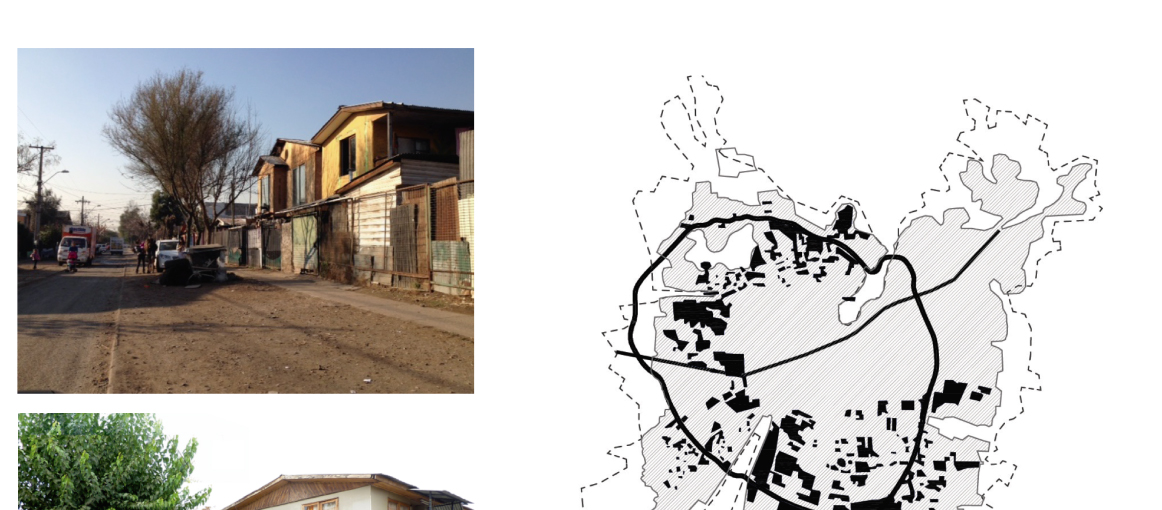Organization: Laboratorio 9x18, School of Architecture of Pontifical Catholic University of Chile
Category: Vivienda, acceso al suelo y regeneración urbana
Context
Issues:
The city of Santiago has critical shortage of urban land, a tendency of developing housing projects for low-income families on the outskirts, and a poor implementation of home renovation programs. But at the same time the city offers great opportunities through certain peri-central areas, particularly in 466 neighborhoods developed in the 1960s, known as "9x18 neighborhoods" or "site operations".
Project objective:
To develop a collective housing pilot project that makes participatory urban renovation projects feasible. It involves multiple actors, implementing a public management model and housing types that increases population density in neighborhoods, minimizing high overcrowding and vulnerability rates, without expelling families to the outskirts of the city. The building typologies seek to combat housing shortage and promote public space use.
Scope: Municipal, Santiago
Results
Achieved Results:
- Advising group with the participation of the Ministry of Housing and Urban Development, two NGOs, two neighbor communities and three local governments, created in the year 2016;
- Three academic studies, publications and an international workshop were conducted;
- Resource management for designing a building whose planimetrics are in open-code ("open-source");
- Formalization of “Laboratorio 9x18”, as a study group of the School of Architecture of Pontifical Catholic University of Chile;
- Three communities and local governments identified and interested in developing the pilot in the Metropolitan Region, through a new housing subsidy of the Ministry of Housing and Urban Development (MINVU) called Small Condominium;
Expected Results
- To promote adjustments and flexibility of public policies to drive regeneration processes of the barrio 9x18 and the replication of pilot experiences in other neighborhoods at a higher scale;
- To develop a pilot project that will benefit at least 30 families by 2020;
- Potential to expand to 466 neighborhoods, thereby benefiting 865,000 families before 2050.
Person/contact: Néstor Rodrigo Tapia Vera-Cruz/ rtapiav@uc.cl
